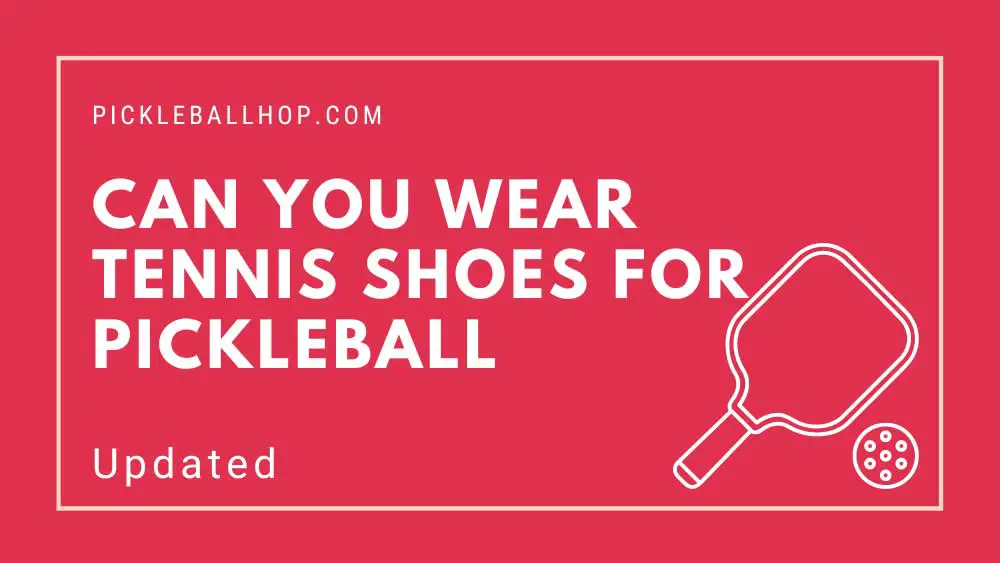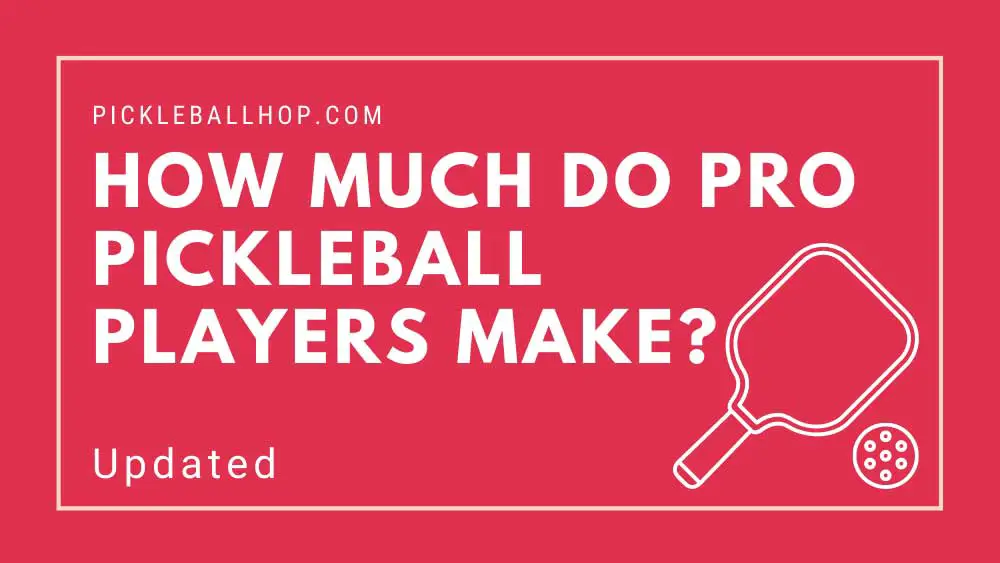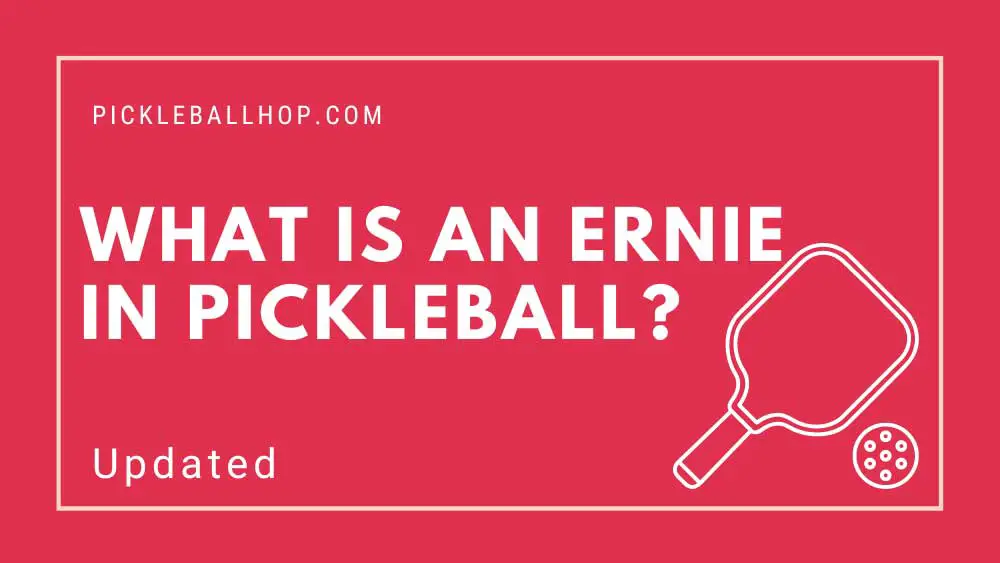is the kitchen line in or out in pickleball? On the surface, pickleball’s line call rules seem straightforward. Pickleball is a game of lines, but calling them correctly can be quite challenging. Using this pickleball blog, you can make the right call on the pickleball courts by learning all the pickleball rules regarding line calls!
Basic Pickleball Line Call Rules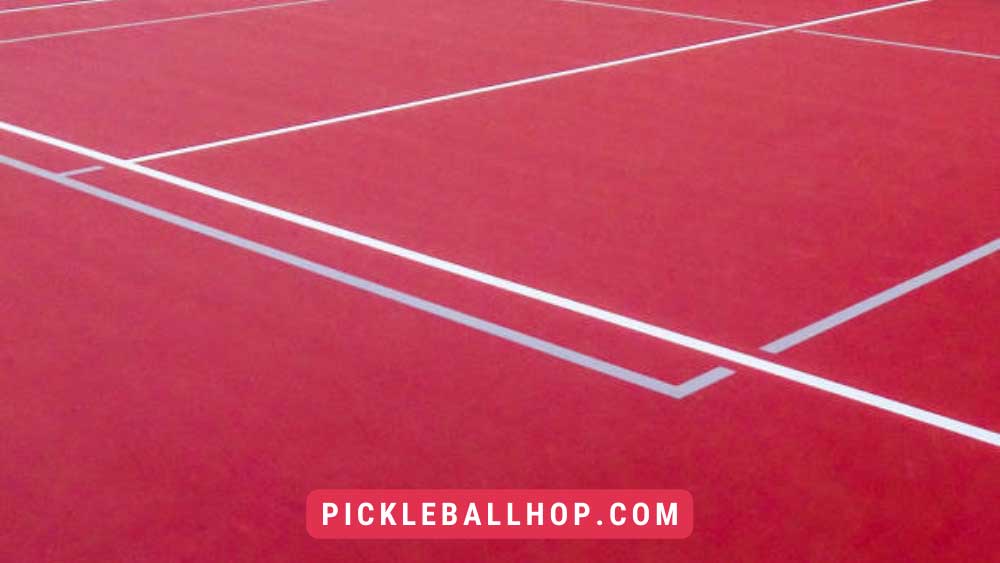
Are lines in or out in pickleball? Pickleball line call rules are as follows:
- It is imperative that the pickleball lands in the right service court when it is served. Are you thinking is the line in or out in pickleball? With the exception of the Non-Volley Zone line (also known as the Kitchen line), all of the lines on the correct service court are “in.” In other words, if the pickleball lands on the sideline, centerline, or baseline, it is “in.” Pickleballs that land in the Non-Volley Zone (or the Kitchen), on the Non-Volley Zone line, or completely outside the correct service court line are considered “out.”
- If the pickleball lands anywhere on the pickleball court on any shot other than the serve in pickleball, it is considered “in.” Any line on the pickleball court is considered “in.” On any shot other than the serve, the pickleball is “in” if it hits the sidelines, centerlines, baselines, or the Non-Volley Zone line. Pickleballs are considered to be “out” if they land completely outside the pickleball court lines.
The rally continues if the pickleball is “in.” An out-of-bounds pickleball means the player/team who hit it has committed a fault and loses the rally.
You may enjoy reading Pickleball Court vs Tennis Court
How are pickleball line calls made?
It is the players on the pickleball court who call the lines in pickleball. Each pickleball player calls the lines on their own side of the court.
In pickleball, however, players are also allowed to call non-volley zone faults and service foot faults on the opponents’ side of the court. If the fault is disputed, the point will be replayed. On either side of the pickleball court, either partner has the right to make line calls. Pickleball games and matches with a referee or line judges are the exceptions to this general rule.
 Players on the pickleball court are responsible for most line calls in a pickleball match or game with a referee. A player will not be responsible for any foot faults or other non-volley zone rules including the non-volley zone foot fault, short serve, or any other non-volley zone violations. For these faults and short serves, and other rules related to the Non-Volley Zone, the referee will be the one to answer. You can read here a guide on what is a fault in pickleball by clicking here.
Players on the pickleball court are responsible for most line calls in a pickleball match or game with a referee. A player will not be responsible for any foot faults or other non-volley zone rules including the non-volley zone foot fault, short serve, or any other non-volley zone violations. For these faults and short serves, and other rules related to the Non-Volley Zone, the referee will be the one to answer. You can read here a guide on what is a fault in pickleball by clicking here.
Most line calls in pickleball games and matches are handled by referees and line judges, not by the players. On the serve, only the centerline will need to be called by the players. All faults, short serves, rules, and line calls would be handled by the referee and line judges. Invalid are any line calls made by a player (except that on the serve), unless they are to his or her disadvantage.
Players may appeal any line call made by a line judge to the referee in a pickleball match with both a referee and a line judge. A line judge’s line call will be overruled by the referee, so the point will be replayed. The pickleball court’s players will replay the point if no line call can be made by the line judges and referees…
You may enjoy reading Can you play pickleball with 2 players?
Culture of Line Calling in Pickleball
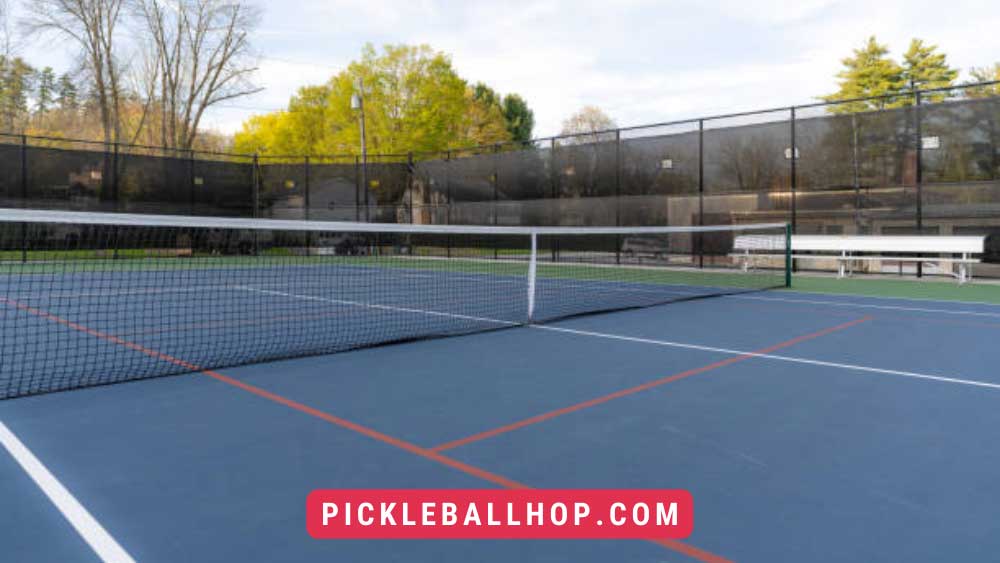 Good sportsmanship and fair play are encouraged in pickleball. Throughout most recreational and tournament play, pickleball adheres to these overarching principles, highlighted by its “Scout’s honor” approach to line calling. An official pickleball rulebook establishes a code of ethics for line calling on the pickleball court in order to promote the sport’s honor approach to line calling. Line calling ethics are outlined in this document as follows:
Good sportsmanship and fair play are encouraged in pickleball. Throughout most recreational and tournament play, pickleball adheres to these overarching principles, highlighted by its “Scout’s honor” approach to line calling. An official pickleball rulebook establishes a code of ethics for line calling on the pickleball court in order to promote the sport’s honor approach to line calling. Line calling ethics are outlined in this document as follows:
- Accuracy must be strived for and used to the fullest extent possible.
- pickleball lines in or out? If players can clearly see space between the line and the area where the pickleball lands, they should call a pickleball “out” when looking across a line on the pickleball court.
- In other words, players should look across the applicable line from inside the pickleball line to the outside of the pickleball court in order to see close calls, rather than from the outside of the pickleball court across the applicable line to the inside of the pickleball court or on top of the line. As a result, the player will be able to tell if there is a space between the line and where the pickleball landed with a better angle when he is looking from the inside of the court to the outside of the court.
- In order for a player to call an out ball promptly, the ball must be hit or dead before the opponent calls it out. Line calls cannot be delayed until the end of a game or after a shot – they must be made immediately. It is presumed that a pickleball is “in” if there is no “out” call prompt, and the rally will continue without an “out” call.
- A voice or hand signal should be used to call the ball “out,” regardless of whether the call may have been obvious. All players should use hand signals when they play with deaf or hard-of-hearing players, and deaf or hard-of-hearing players may use only hand signals.

- On a line call, players must give their opponent(s) the benefit of the doubt. In other words, if there were any uncertainties, the opponent(s) would win. Whenever there is a questionable line call, the opponent should be favored.
- Doubles teams that disagree with each other on whether a pickleball is “in” or “out” will agree that the ball is “in.” There is no rule regarding the pickleball being called “out” unless the referee sees the line call and sees the pickleball “out.” Referees who fail to see the line call, the pickleball is declared “in.” Player/team requesting a line call has given up their right to make the call as soon as they ask the referee to make it.
- Any line call should not be influenced by spectators.
- Players should not question the line calls of their opponents. Referees may appeal line calls to them at any time before the next serve, if there is one.
- Line calls may be requested by players from their opponent(s). A player or team has forfeited their right to make a line call as soon as they ask the opposing team to make one. If the opponent(s) cannot see the line call, then the ball will be ruled “in.”
- At any time prior to the next serve, a player or team may request a line call from the referee. A referee will rule the ball “in” if the referee did not see the line call. Players/teams give up their right to request a line call as soon as they request one.
- An overruled line call gives the rally to the player (or players) who did not make it. Therefore, the winner of the rally will be the player(s) who called the line call.

- Players who yell “out,” “no,” or other similar phrases, while the pickleball is in the air, are deemed partners in doubles play and are not making a line call. It will be deemed a line call if the pickleball bounces, and play will be stopped.
- Any player can have a call overruled in their favor (in other words, in their opponents’ favor) at any time (even when a referee and/or line judge are present).
Although pickleball has a written “Code of Ethics for Line Calling,” it embraces an honor system for line calling and promotes a culture of good sportsmanship.
You may enjoy reading How Much Do Pro Pickleball Players Make?
Pickleball Line Call Dispute Resolution
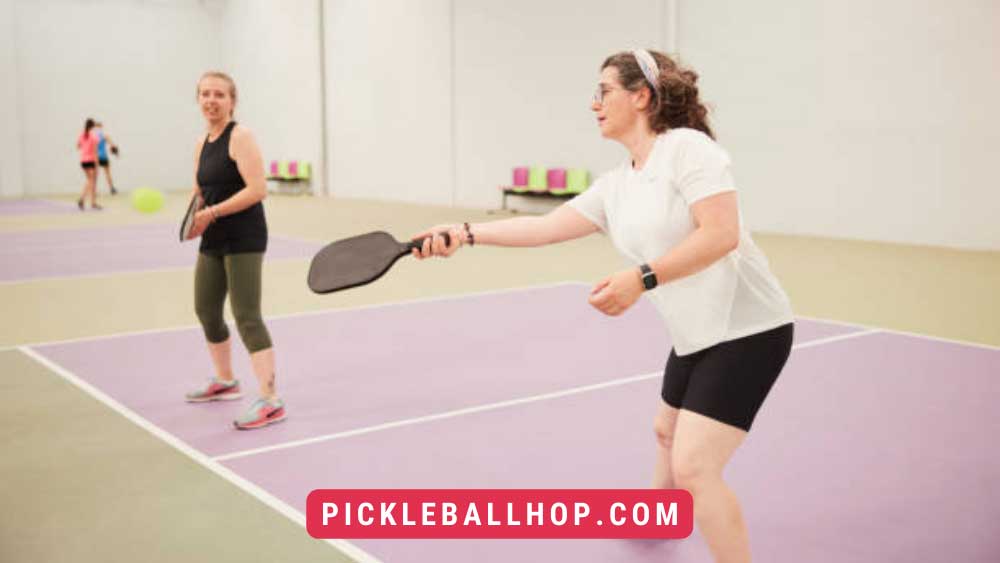 In pickleball, you should not question your opponents’ line calls when there is a dispute about line calls. Nevertheless, if a referee is present, you have the right to appeal a line call to the referee before the next serve. Any line call made by a line judge can also be appealed to the referee before the next serve.
In pickleball, you should not question your opponents’ line calls when there is a dispute about line calls. Nevertheless, if a referee is present, you have the right to appeal a line call to the referee before the next serve. Any line call made by a line judge can also be appealed to the referee before the next serve.
Disputes over pickleball line calls follow the following order of precedence.
Order of Precedence
When the pickleball lands on the side of the court where there was no line call by the player or team:
- A line call is made by the player or team where the pickleball landed on the pickleball court. Line calls should be made by the player or team who clearly saw the call. As a result, all doubt will be resolved in favor of the opponent(s) if the pickleball is not called “in.”
- If the player/team did not see the line call, they could ask the referee or the opponents. Neither the referee nor the opponent(s) (depending on the case) will make the line call unless they clearly see it. The play will be considered “in” if neither the referee nor the opponent(s) ask for it. If either the referee or the opponent(s) ask for it, then both players or teams forfeit their right to call the play. This means that a player or team may not make a line call, regardless of whether the referee or opponent(s) make one.
- There is one more appeal if there is a referee for the pickleball game if the player or team asked the opponent(s) to make the line call. The opponent(s) may have made a clear line call, but it doesn’t matter. There is still the possibility of appealing to a referee (in the case of a referee) by the player or team responsible for making the original line call. Line calls will only be made by the referee if he or she clearly sees them. Line calls made by opponents will stand if they do not. A player or team gives up their right to make a line call as soon as they ask either the referee or their opponent(s).
Suppose that the player or team calling the line on the pickleball court’s side made the following call:
- It is still possible to ask either the referee or the opponent(s) if they saw the line call, even if it was made by the player or team where the pickleball landed. A line call will only be made by the referee or opponent (as applicable). The initial call remains valid if it does not. A player or team gives up their right to make line calls as soon as they ask either the referee or the opponent(s). This means that the player or team may not make a line call, regardless of whether the referee or the opponent(s) makes one. Either the referee or the opponent(s) will make the line call, or if neither clearly saw, then the initial call stands.
- There is one more appeal if there is a referee for the pickleball game if the player or team asked the opponent(s) to make the line call. The opponent(s) may have made a clear line call, but it doesn’t matter. There is still the possibility of appealing to a referee (in the case of a referee) by the player or team responsible for making the original line call. Line calls will only be made by the referee if he or she clearly sees them. Otherwise, the opponent’s line call will stand. Players or teams who ask either the referee or their opponent(s) for a line call forfeit their right to make one.
You may enjoy reading How To Become A Professional Pickleball Player?
No Lets in Pickleball for Tough Line Calls
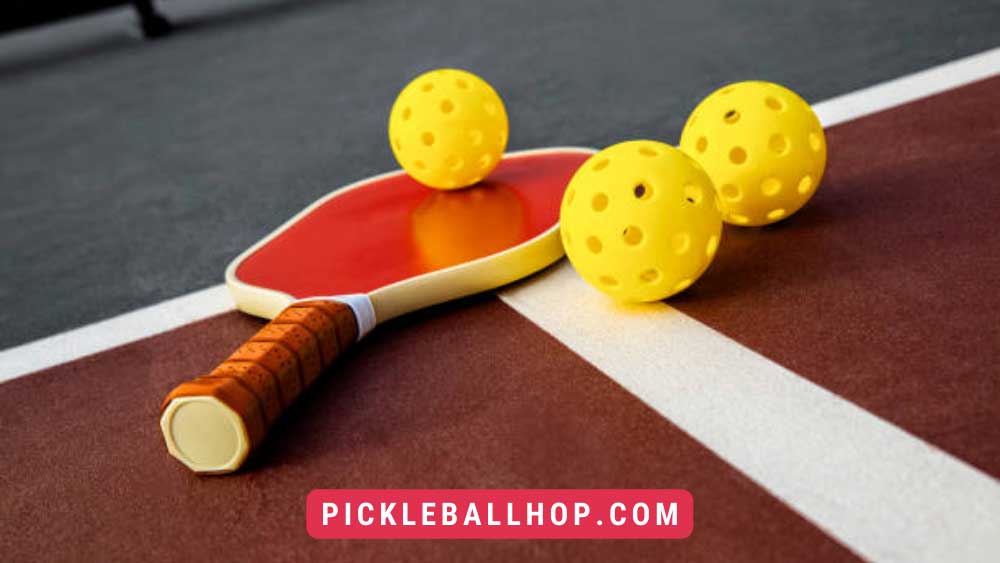 Pickleballs’ Official Rulebook does not mention claiming a let (or a do-over) when a line call goes wrong on the court. Pickleball does not have “do over” points, nor can a player claim a let if he or she missed a line call. Pickleball is assumed to be “in.”
Pickleballs’ Official Rulebook does not mention claiming a let (or a do-over) when a line call goes wrong on the court. Pickleball does not have “do over” points, nor can a player claim a let if he or she missed a line call. Pickleball is assumed to be “in.”
Even though a “do-over” is not explicitly permitted by the Official Rulebook, many pickleball players will allow one during recreational play for a tough line call. Most of this stems from the pickleball culture of good sportsmanship and fair play.
As a result of this principle, if there is a situation on the pickleball court where the line call does not meet the requirements of these rules or the Code of Ethics for Line Calling, players should cooperate with each other to resolve any disputes, including replaying the point if it is a “rule-less” situation that is not addressed by the Official Rules. Furthermore, there is a belief that pickleball never lies, which is why the concept of “do-overs” is considered in pickleball. It’s akin to karma, in that it favors everyone who won the previous rally.
Is it time to make the line call?
Basically, follow your opponent’s line calls as if you were an opponent. Line calls should only be made on the pickleball court where you can clearly see them. Make sure your opponent(s) is properly represented and resolve any doubts you may have. Lastly, make sure to speak loudly and use hand signals clearly!
You may enjoy reading Pickleball vs Badminton
Are you looking for more pickleball tips, strategies, and information?
Visit pickleballhop’s Pickleball Guide and Pickleball Blog for more pickleball tips, strategies, and other information!

